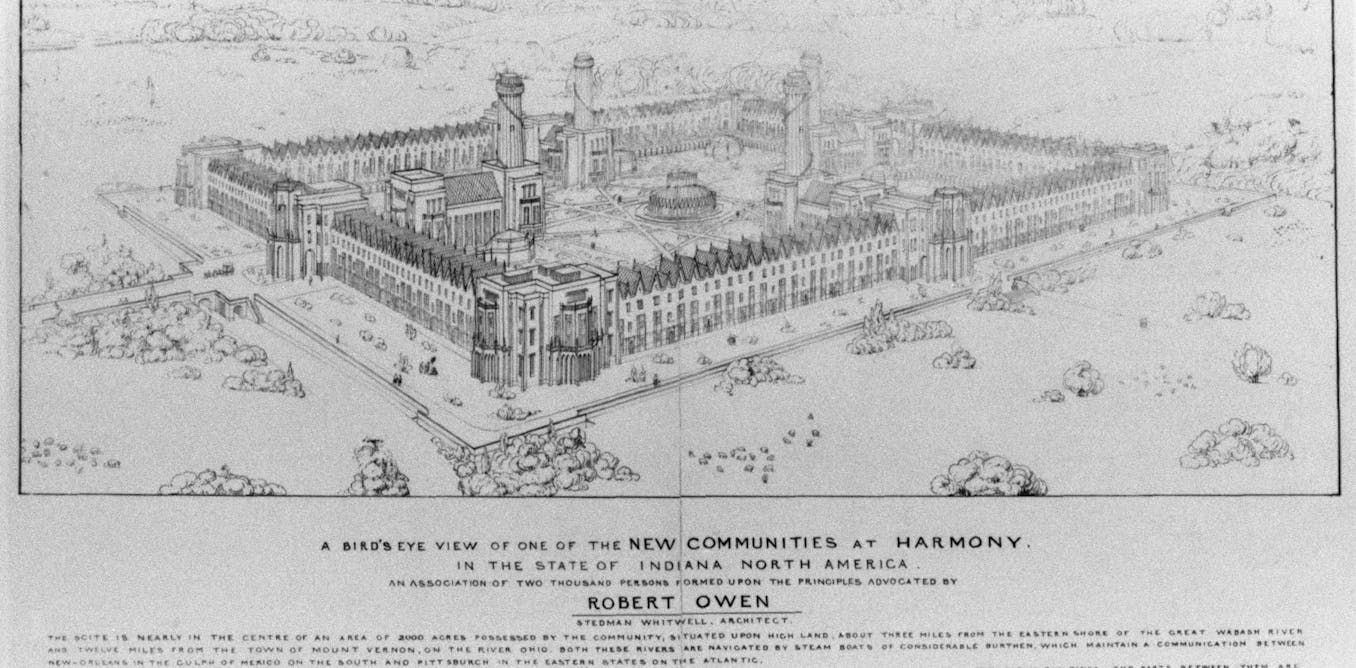by RICHARD GUNDERMAN

The utopian community modeled on the industrialist’s principles lasted only two years. PHOTO/Corbis Historical/Getty Images
Do you have a work schedule that leaves you with enough time off the clock to rest up and handle your other responsibilities?
If so, you might owe something to Robert Owen, a wealthy industrialist who was born in Wales on May 14, 1771.
Owen is widely credited with being the first person to advocate for a universal “eight hours labor, eight hours recreation, eight hours rest” approach to work-life balance. He experimented with this concept at his own factories and urged employers everywhere to adopt this management ethos as part of the socialist ideology he embraced decades before Karl Marx.
In the early 19th century, many U.S. and European factory workers worked up to 18 hours a day, six days a week.
Once a year, I travel with 15 fellows enrolled in a leadership program to New Harmony. It’s the site of Owen’s greatest experiment, a “cooperative community” he founded in southern Indiana on the banks of the Wabash River. Far more radical than limiting labor to eight-hour workdays, the utopia Owen envisioned ran up against human nature.
Early success and a socialist vision
Owen, born into a working-class family, had virtually no formal education. By the age of 21, he was managing a textile mill, and at 28 he married the daughter of a Scottish mill owner, whose business he soon purchased. Owen rejected long hours and took steps to make child labor less exploitative. Although he paid higher wages than his competitors, the mill’s profits made him a wealthy man.
Conversation for more
